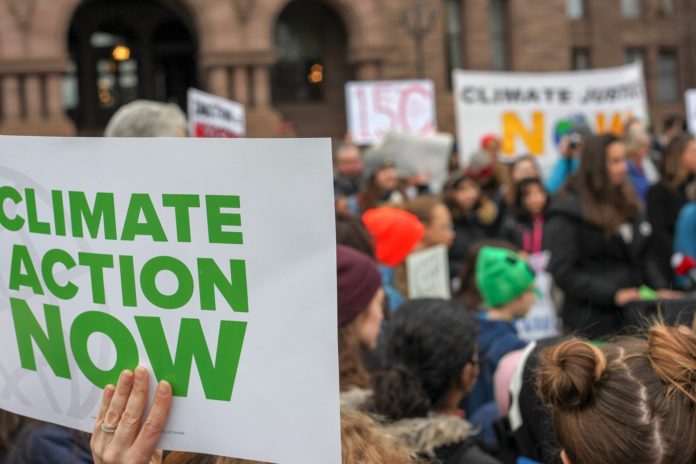The ongoing climate crisis is affecting our health, and will continue to pose serious health risks in the future.
The physical health threats caused by the climate crisis are obvious: illnesses related to extreme heat or cold, increased risk of respiratory disease due to deteriorating air quality, and water- or food-borne contaminations, to name a few. But with the world facing such extreme ecological loss as a result of the climate crisis, is our psychological health at risk too?
According to a recent study, so-called ecological grief amongst Canadians is growing — and the climate crisis is to blame.
The study was led by Katie Hayes, a PhD candidate in the University of Toronto’s Dalla Lana School of Public Health, and published in the International Journal of Environmental Research and Public Health.
In a literature review published last year, Hayes analyzed articles covering both climate change and mental health over the last two decades. With this new study, she’s gone deeper into the literature to determine the factors that influence whether or not an individual or a group will be able to adapt to the mental health consequences of a changing climate.
Hayes found that not only are there a range of mental health risks and impacts from a changing climate, but that there are unequal risks to people based on various social and environmental factors.
The mental health risks posed by the ongoing climate crisis range from post-traumatic stress disorder (PTSD) to grief or survivor guilt following climate-related extreme weather events. In fact, ecological grief is being increasingly reported amongst Canadians, and Eco-Grief support groups have begun popping up across the country.
What’s more, the risk of experiencing climate-related mental health issues varies depending on one’s employment status, education or income level, and housing conditions, among other factors. Those living in poverty or facing social injustices appear to face the greatest risk of mental health issues caused by a changing climate.
The authors also analyzed factors that can influence one’s ability to adapt to and overcome the mental health consequences of climate change. Among the most prominent factors that have the ability to protect Canadians’ mental health during the climate crisis were social capital, which is the potential of social relationships to help coordinate community action, and a sense of community.
Interestingly, these two factors often outweighed economic assistance or governmental aid in their potential to protect mental health. Hayes stressed that response organizations should consider the power of social relationships and community when addressing future climate-related events.
So what can we do to help? The research shows that coming together as a community — in a coordinated Climate Strike, for example — is one of the best ways to preempt climate-related mental health risks.
Luckily for Canadians, communities have already begun coming together in record-breaking numbers to call for change in the midst of the climate crisis. Together, we have the power to make a difference: both for ourselves and for the planet we call home.








































